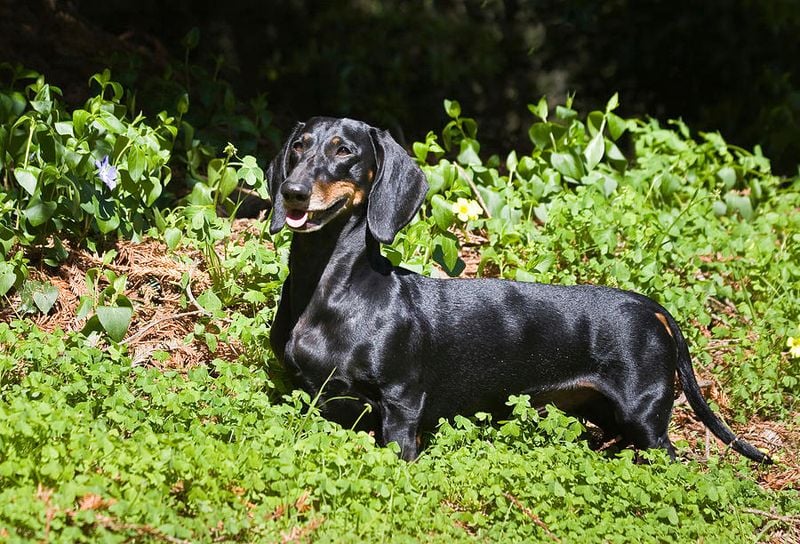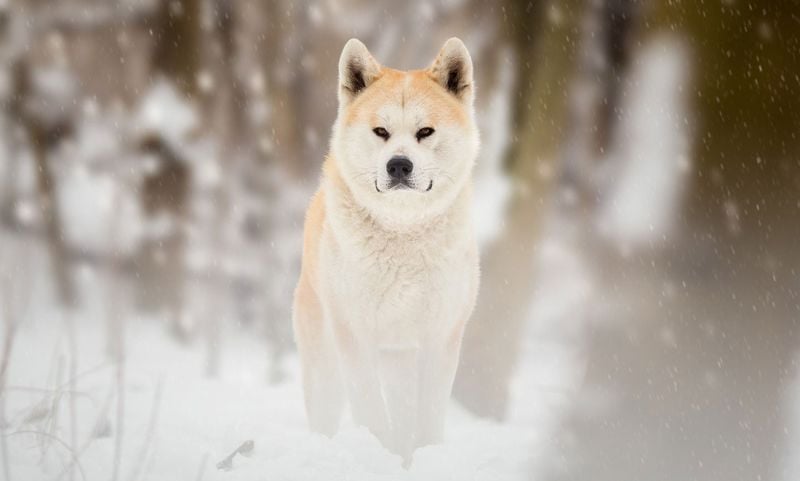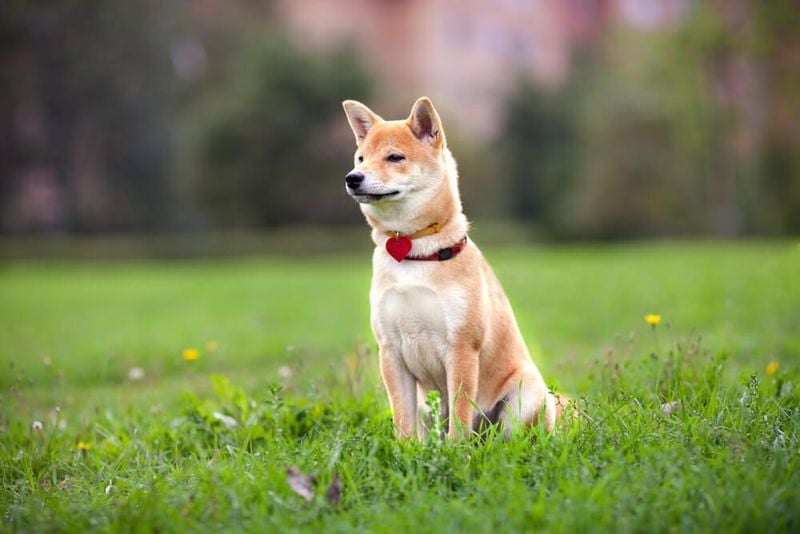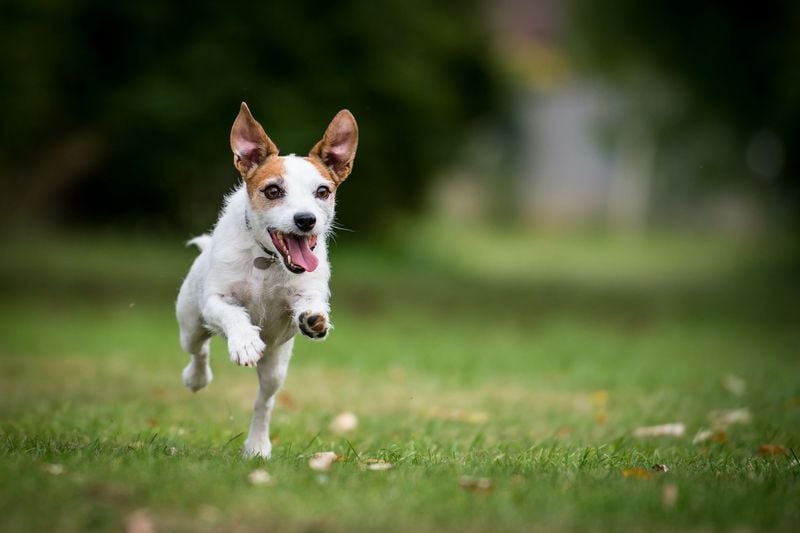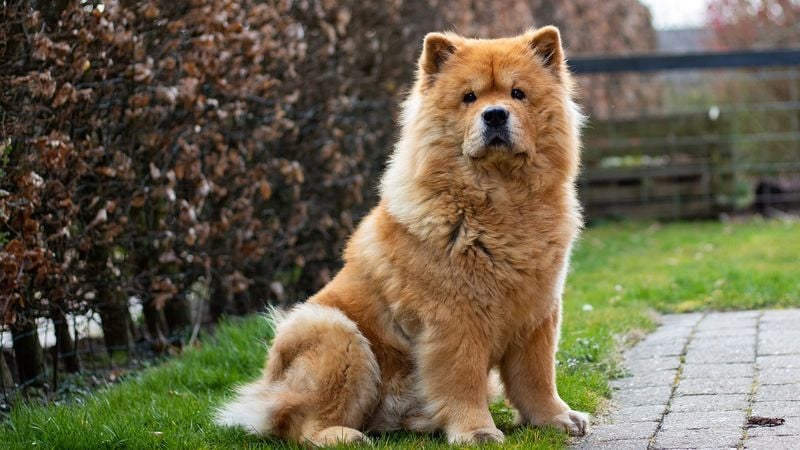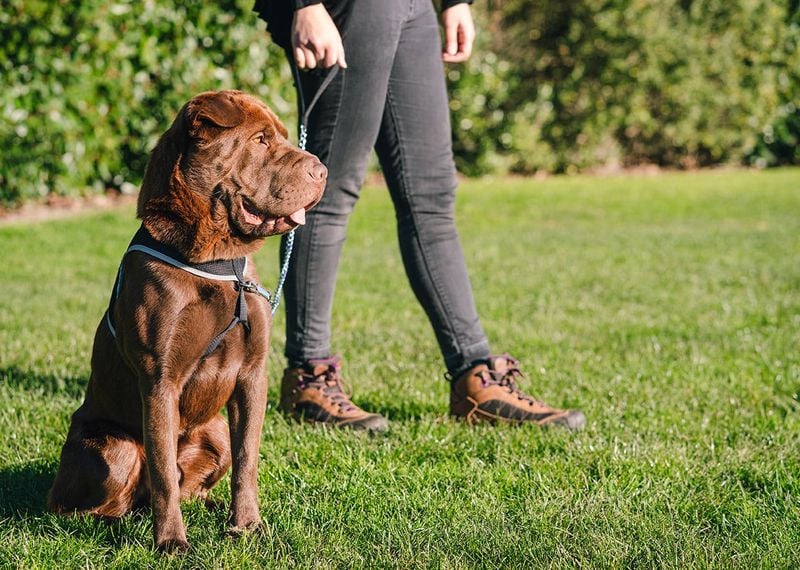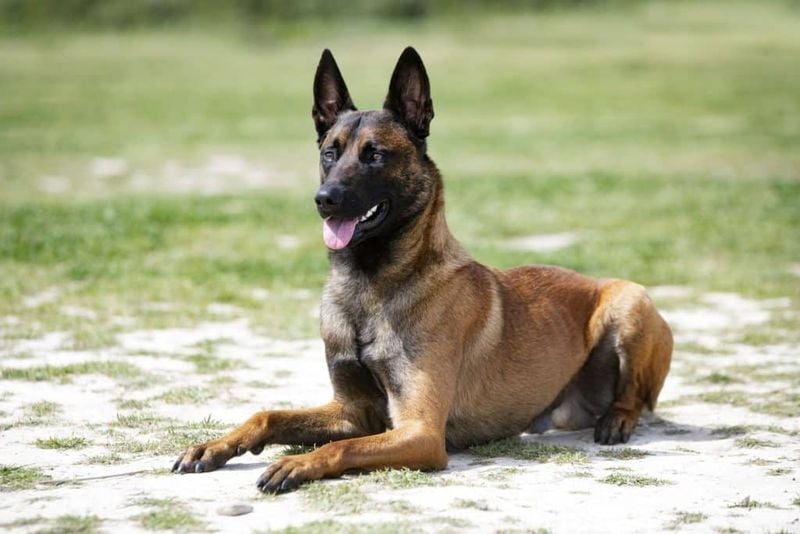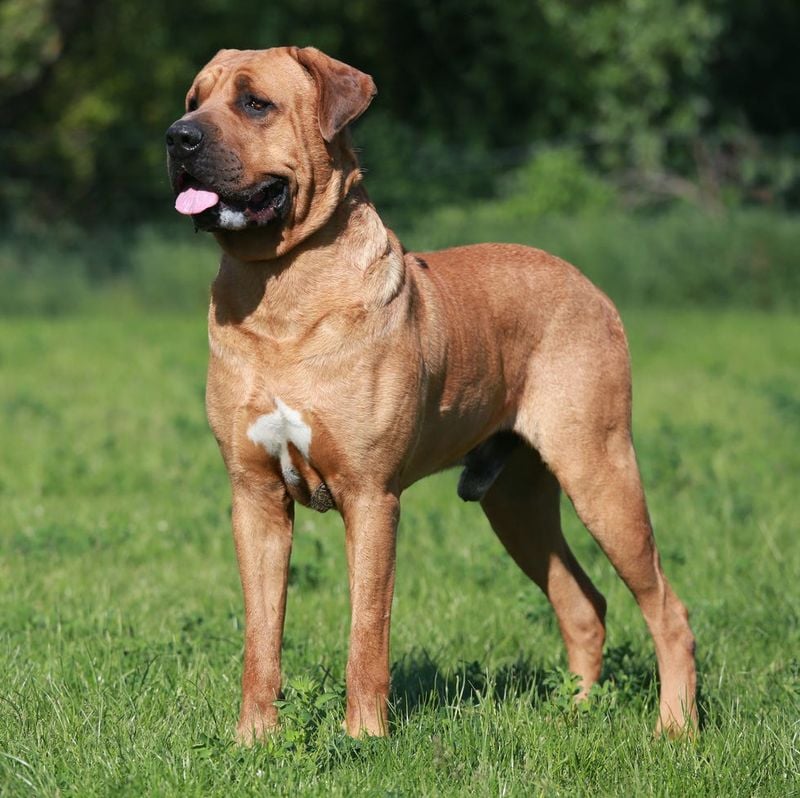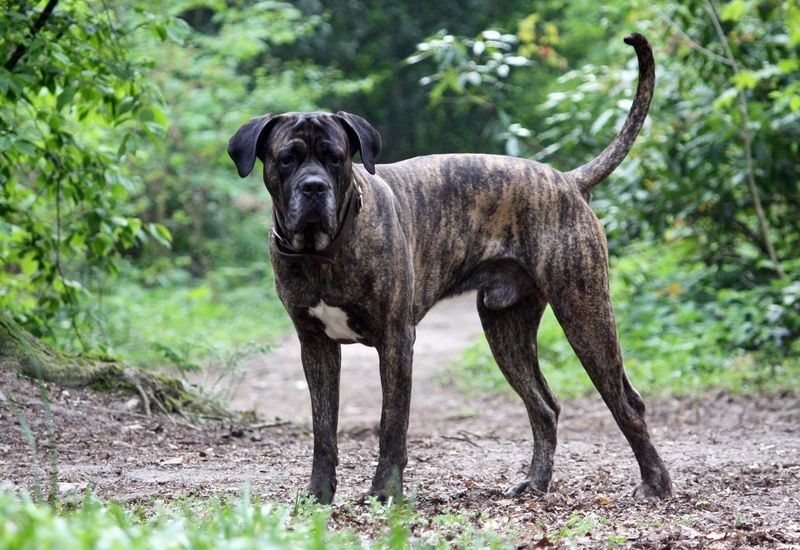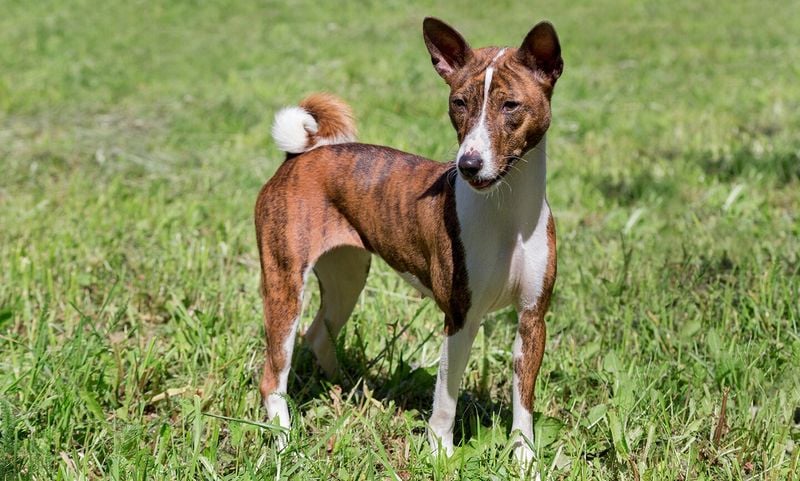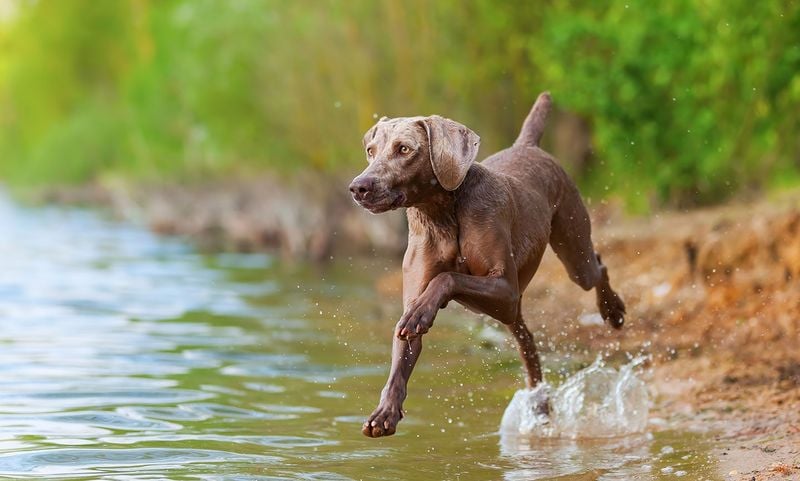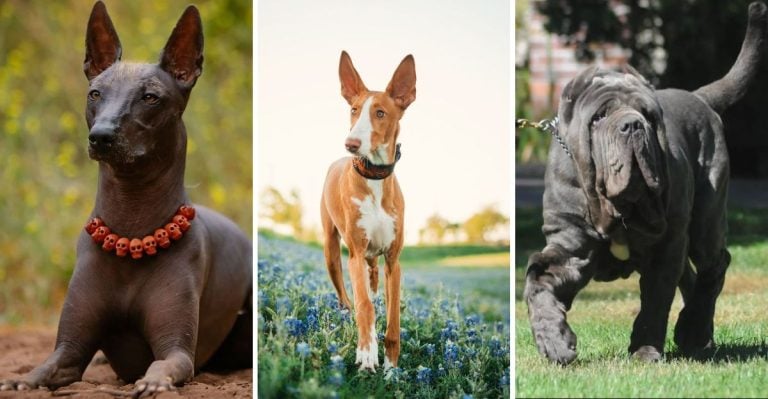21 Dog Breeds That Simply Don’t Get Along With Other Dogs
Some dogs just aren’t social butterflies—and that’s okay. While many breeds thrive at dog parks, playgroups, and multi-pup households, others would rather skip the tail-wagging small talk and go solo.
If you’ve ever seen a pup give another dog the side-eye across the fence, you know exactly what we’re talking about.
Just like people, not all dogs get along with everyone they meet. Some are territorial, others are dominant, and a few simply enjoy their own space without a canine companion crowding their vibe.
These traits don’t make them bad dogs—they just have different social preferences that can lead to scuffles, growls, and standoffs.
In this article, we’re diving into the dog breeds that are known for not playing well with others.
Whether it’s a result of strong prey drive, a stubborn personality, or a fierce loyalty to their human, these pups tend to struggle with sharing their turf.
And while early socialization and training can make a big difference, some breeds are just hardwired to be lone wolves.
If you’re a dog lover thinking about adding a second pup to the family—or just curious about why your neighbor’s dog always seems to be in a bad mood at the dog park—this list is for you.
We’re breaking down the breeds that prefer to keep their circle small and their peace intact.
Of course, every dog is an individual. Just because a breed has a reputation for being unfriendly with other dogs doesn’t mean every pup of that breed will be.
But knowing which breeds tend to have issues can help you make smarter, safer choices for your home and your pack. Let’s take a closer look at the breeds that aren’t afraid to say, “No thanks, I work better alone.”
1. Chihuahua
Chihuahuas might be compact in size, but they boast a personality that’s larger than life.
Their bold attitude often makes them act as if they’re the boss of the park. These tiny titans are quick to stand up for themselves, and might not always play well with others.
Despite their small stature, Chihuahuas are courageous and sometimes feisty with unfamiliar dogs.
Don’t be surprised if they try to assert dominance over larger breeds. They thrive on attention and can become territorial around their favorite humans.
Early socialization can help mitigate their territorial tendencies. However, their natural disposition to be wary and assertive with other dogs often remains. A Chihuahua’s relationship with others is as unique as its vibrant personality.
2. Dachshund
Dachshunds often carry the heart of a hunter, making them a breed with a strong prey drive. Their instinct to chase and their stubborn nature can sometimes clash with other dogs, especially in shared spaces.
Despite their charming, elongated bodies, Dachshunds are not always eager to share the spotlight with fellow canines. Their independent streak often leads them to act on their own, ignoring the social cues of other dogs.
Given their history as hunters, it’s no wonder they can be a handful in a multi-dog household. The key to a peaceful environment often lies in understanding and managing their hunting instincts through proper training and socialization.
3. Akita
Akitas are renowned for their strong-willed nature and impressive presence. These dogs are often reserved with other canines, a trait that can escalate to aggression if not properly managed.
Their aloofness is most noticeable around dogs of the same sex.
While fiercely loyal to their human companions, Akitas may not show the same affection to strange dogs. Their history as guardians explains their protective instincts and dominance in their interactions.
Ensuring that an Akita gets along with others requires early and consistent socialization. Despite this, many Akita owners find their dogs prefer human company over the company of other dogs.
4. Shiba Inu
Shiba Inus are known for their striking looks and even more striking independence. These dogs are often described as cat-like in their aloofness and preference for solitude. They enjoy their own company and that of their human families above all.
When it comes to other dogs, Shiba Inus can be selective, often choosing not to engage. Their proud demeanor means they rarely back down if challenged, which can lead to conflicts.
For owners, understanding a Shiba’s personality is crucial. While they may not warm up to every dog they meet, with patience and socialization, they can learn to tolerate the presence of other dogs without incident.
5. Jack Russell Terrier
Jack Russell Terriers are small but mighty, with a zest for life that’s hard to match.
Their high energy levels and strong personalities make them a handful in multi-dog environments. They often want to be the leader, which can cause friction with other dogs.
This breed’s intelligence is matched by its stubborn nature, often leading them to assert themselves in social situations. They’re quick to show who’s boss, sometimes at the expense of harmony.
Managing a Jack Russell’s interactions involves channeling their energy into positive outlets. Proper training and plenty of exercises are essential to ensure they coexist peacefully with other dogs.
6. Chow Chow
With their lion-like manes and dignified presence, Chow Chows are a breed that commands respect. These dogs often exude an air of superiority, preferring independence and solitude.
Chows can be reserved, sometimes bordering on aloof, particularly with other canines. Their early history as guard dogs contributes to their reserved nature and potential aggression without proper socialization.
For owners, understanding the Chow’s need for space is vital. With consistent training and socialization, Chows can learn to tolerate other dogs, though they may never become the playful partner some might hope for.
7. American Bulldog
Loyalty and strength define the American Bulldog, a breed known for its protective instincts. While they adore their human families, these dogs can be wary of other canines, often preferring to keep their distance.
Their territorial nature is instinctual, stemming from their history as protectors. This can lead to tensions, particularly with other males, if not addressed through training.
With early socialization, an American Bulldog can learn to manage its instincts. Yet, it’s crucial for owners to remain vigilant, ensuring their dog feels secure and doesn’t feel the need to assert dominance aggressively.
8. Doberman Pinscher
A breed marked by its elegance and intelligence, the Doberman Pinscher is a natural protector. These dogs are known for their assertive nature, which can lead to combative interactions with unfamiliar dogs.
Their sharp instincts and loyalty to their owners are unmatched, but these traits can make them less accommodating to other dogs. A Doberman’s protective nature often extends to its territory and family.
For a peaceful coexistence, extensive training and socialization from a young age are crucial. Dobermans can learn to manage their instincts, but their inherent drive to protect remains strong.
9. Shar Pei
Shar Peis are distinctive in appearance and personality. Known for their loyalty, they often form strong bonds with their families, but can be wary of unfamiliar dogs.
Their aloof demeanor often leads them to avoid interactions with other canines. While not inherently aggressive, their wariness can escalate without proper socialization.
Owners who understand their Shar Pei’s cautious nature can better manage interactions with other dogs. With consistent training, they can learn to peacefully coexist, though they often prefer their own kind or solitude.
10. Alaskan Malamute
Alaskan Malamutes are majestic creatures, bred for their strength and endurance. Despite being pack animals, they don’t always get along with unfamiliar dogs, especially of the same sex.
Their strong pack instincts can lead to dominance issues, making early socialization essential. Malamutes thrive in environments where their need for hierarchy is understood and respected.
With proper guidance, they can learn to share their space with others. However, their natural inclination to assert dominance can make introductions challenging without careful management.
11. Scottish Terrier
Scottish Terriers, with their independent spirit and boldness, are not easily intimidated. These traits often lead them to assert themselves in interactions with other dogs, regardless of size.
Their feisty nature is a double-edged sword, providing both charm and challenge in multi-dog settings. Scotties often hold their ground, leading to potential conflicts if not managed properly.
For a harmonious environment, Scotties benefit from clear boundaries and early socialization. Their independent streak remains, but with guidance, they can learn to coexist peacefully.
12. Belgian Malinois
Belgian Malinois are celebrated for their intelligence and work ethic. These dogs excel in various roles, but without thorough socialization, their dominant nature can become problematic in social settings.
Their sharp minds require engagement, and when bored, they may assert themselves over other dogs. Malinois benefit from environments that challenge them mentally and physically.
Owners who provide consistent training can harness their drive positively, ensuring they coexist well with other dogs. Despite their potential for dominance, Malinois can be loving companions with the right guidance.
13. Tosa Inu
The Tosa Inu, with its roots in Japan, carries a powerful presence. Bred for dog fighting, these dogs are calm yet possess a potential for aggression towards unfamiliar canines.
Their reserved nature can be mistaken for aloofness, but it’s more a testament to their strength and control. Tosas require firm, respectful handling to ensure peaceful interactions.
For those who understand their history and temperament, Tosas can be gentle giants. However, their potential for aggression remains a consideration for owners in multi-dog households.
14. Miniature Pinscher
Miniature Pinschers, often called “Min Pins,” pack a lot of personality into a small package. Their larger-than-life attitude can sometimes lead them to try dominating other dogs.
Despite their size, Min Pins are unafraid to assert themselves, often leading to spirited interactions. Their confidence can border on stubbornness, so consistent training is key.
In a multi-dog environment, Min Pins benefit from clear rules and plenty of positive reinforcement. This helps ensure their bold nature doesn’t lead to unwanted conflicts.
15. Lhasa Apso
Lhasa Apsos are not just another pretty face. Beneath their fluffy coats lies a dog that’s watchful and sometimes bossy, especially with other dogs.
Their history as sentinels in Tibetan monasteries speaks to their alertness and protective nature. Lhasas can be defensive around unfamiliar dogs, leading to tense interactions.
Owners can manage these tendencies with early socialization and clear communication. While Lhasas may never be the life of the party, they can learn to share their space with others with the right approach.
16. Cane Corso
Cane Corsos are a formidable breed, known for their protective instincts and commanding presence. Their confidence can sometimes spill over into aggression towards other dogs if not properly managed.
These dogs thrive on strong leadership and firm training, which helps mitigate their dog-aggressive tendencies. Their loyalty to their family is unmatched, but this can also translate to territorial behaviors.
To ensure a peaceful environment, Cane Corsos need early socialization and ongoing training. This helps them learn to manage their instincts while maintaining their protective nature.
17. Bullmastiff
Bullmastiffs are gentle giants with a protective streak that can become problematic without proper socialization. They are powerful dogs with a history of guarding, which influences their interactions with other canines.
Their instincts can lead them to be wary of strange dogs, but they can learn to be accepting with early exposure and training. Bullmastiffs often balance their strength with surprising gentleness towards their human families.
Owners need to be proactive in managing their Bullmastiff’s social interactions, ensuring they feel secure and confident without resorting to aggression.
18. Basenji
Basenjis are known for their independence and unique, cat-like behavior. Their history as hunters is evident in their interactions, often making them standoffish with other dogs.
Their aloof nature means they may not seek out social interactions with other canines, preferring to observe from a distance. This can lead to tension if not managed with understanding and patience.
For owners of Basenjis, providing opportunities for positive interactions is crucial. With the right approach, these dogs can learn to tolerate others, though they may always prefer their own company.
19. Weimaraner
Weimaraners are graceful and intelligent, with a protective nature that can sometimes extend to their interactions with other dogs.
They are affectionate with their human families but can be possessive when sharing space with unfamiliar canines.
Their assertive nature requires careful management, ensuring their social experiences are positive and controlled. Weimaraners thrive in environments where their intelligence is engaged.
To foster good relations with other dogs, early and consistent socialization is key. With guidance, Weimaraners can learn to balance their protective instincts with positive interactions.
20. Fox Terrier
Fox Terriers are spirited and fearless, always ready to take on the world. Their energy makes them a lively companion but can also lead to scrappy interactions with other dogs.
Their bold nature often translates to a lack of fear, sometimes challenging larger dogs without hesitation. This trait requires careful management in multi-dog environments.
With proper training and socialization, Fox Terriers can learn to channel their energy positively. Owners who respect their independent spirit will find a loyal and entertaining companion.
21. Australian Cattle Dog
Australian Cattle Dogs are renowned for their work ethic and intelligence. Their strong bite inhibition and dominant streak make them formidable, albeit challenging, companions in multi-dog households.
These dogs are natural leaders, often trying to herd other pets or family members. Their need for mental stimulation can lead to dominance issues without proper outlets.
Ensuring a harmonious environment involves providing ample opportunities for exercise and work. With the right approach, Australian Cattle Dogs can learn to coexist peacefully, channeling their energy into productive tasks.


